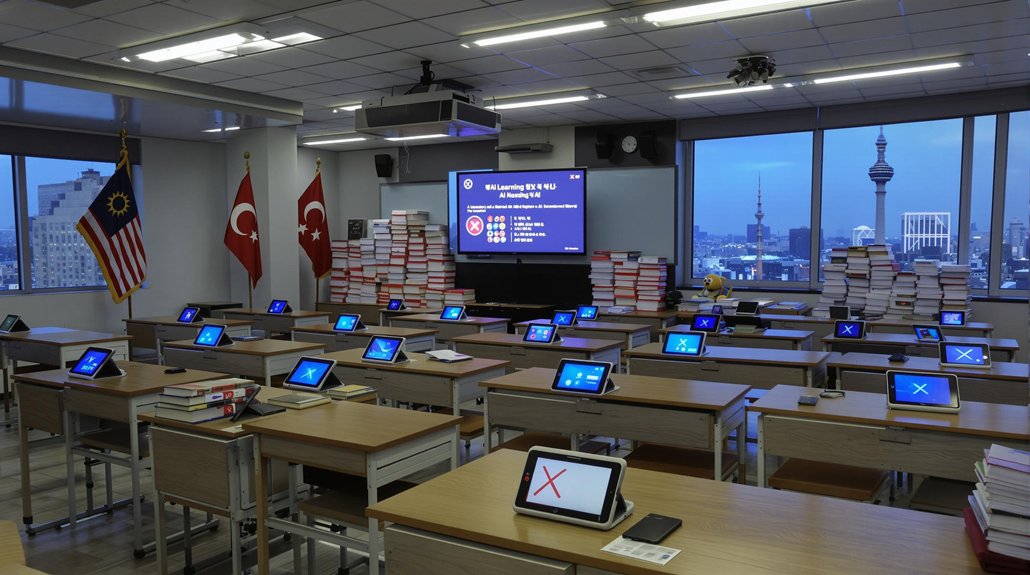While South Korea was busy trying to drag its education system into the 21st century, lawmakers just yanked the plug on AI textbooks. The National Assembly passed a bill that basically tells artificial intelligence to take a hike – at least when it comes to official educational materials.
The Democratic Party of Korea, wielding their parliamentary majority like a sledgehammer, pushed through an amendment that narrows the definition of “textbook” to printed books and basic e-books only. AI-powered digital textbooks? Intelligent learning software? Not textbooks anymore. Just regular educational materials. The People Power Party fought back, but math is math – they didn’t have the votes.
This legislative gut punch completely dismantles President Yoon Suk Yeol‘s flagship education reform. Remember that whole grand vision of personalized AI learning? Yeah, about that.
The timing is particularly brutal. AI textbooks were already rolling out in 2025, teaching English and math to third and fourth graders, plus computer science in secondary schools. The government had burned through 533.3 billion won – roughly $496 million – on this project in 2024 alone. About 30 percent of schools had already adopted the technology when lawmakers decided to flip the table.
Here’s where it gets messy. Without official textbook status, these AI systems lose all government funding and subsidies. Schools now face a choice: cough up the cash themselves or abandon the technology. Students might have to pay around 5,000 won monthly per subject if they want to keep using AI textbooks. That centralized platform managed by the Korea Education and Research Information Service? Its future looks shaky at best. Now AI textbooks must be reviewed and approved by individual school management committees, adding another layer of bureaucracy to an already complicated process.
The data implications are massive. That beautiful, standardized system collecting learning analytics across the country? Gone. South Korea’s dreams of using educational data to develop “sovereign AI”? Pretty much dead in the water. Instead of one coherent system, expect a fragmented mess of different vendors with incompatible platforms. This situation raises serious data privacy concerns for students as multiple vendors may handle sensitive learning information without uniform standards.
Companies that invested heavily in developing these AI textbooks are probably reaching for the antacids right now. Their market just evaporated overnight, with no changeover plan or sunset clause to soften the blow. Publishers have already filed administrative lawsuits against the Education Ministry, desperate to salvage their investments estimated at 800 billion won industry-wide.
References
- https://www.thestar.com.my/aseanplus/aseanplus-news/2025/08/04/south-korea-pulls-plug-on-ai-textbooks-leaving-schools-companies-without-funding-for-them
- http://koreabizwire.com/ai-textbooks-lose-official-status-as-seoul-reclassifies-them-as-educational-aids/326782
- https://biz.chosun.com/en/en-society/2025/08/04/PNKFZEJEBVBXNMX3SALXZ45TEU/
- https://koreajoongangdaily.joins.com/news/2025-07-25/opinion/columns/Korea-undermines-its-own-AI-goals-by-downgrading-digital-textbooks/2360737
- https://www.koreatimes.co.kr/southkorea/society/20250610/ai-textbooks-targeted-for-phaseout-under-south-koreas-new-administration









